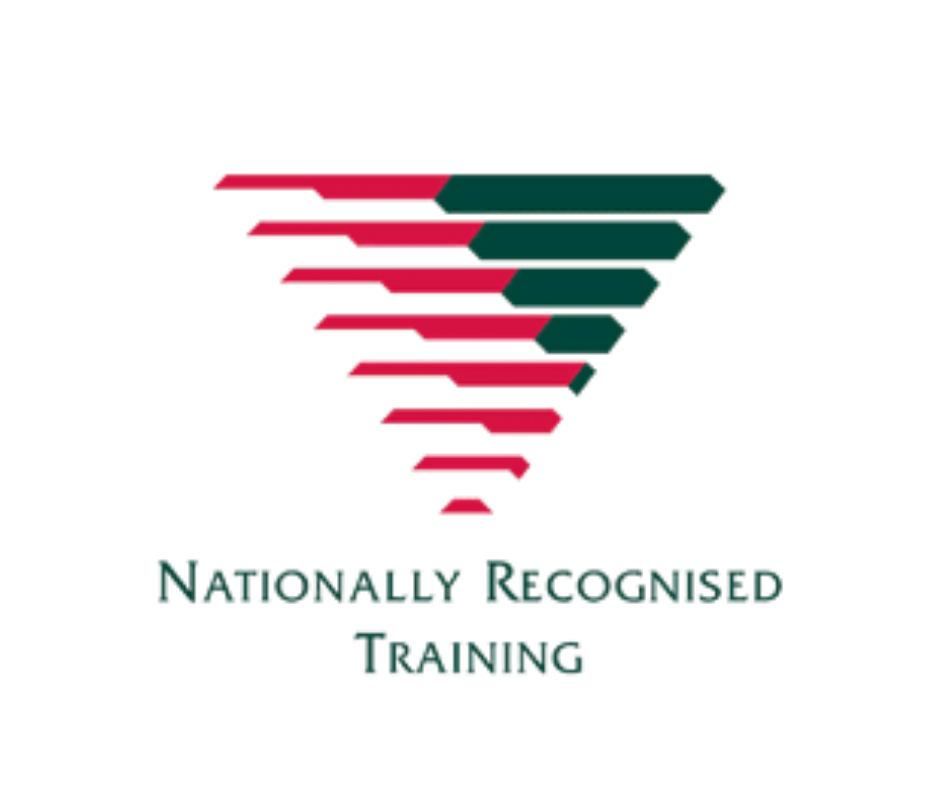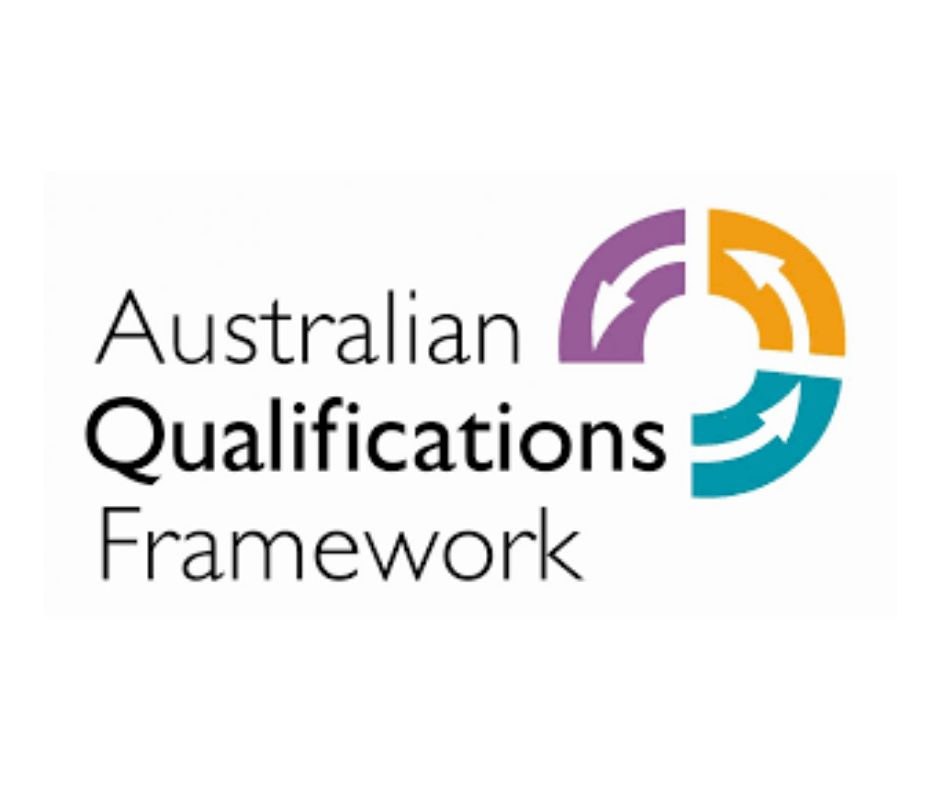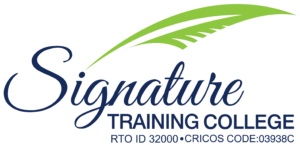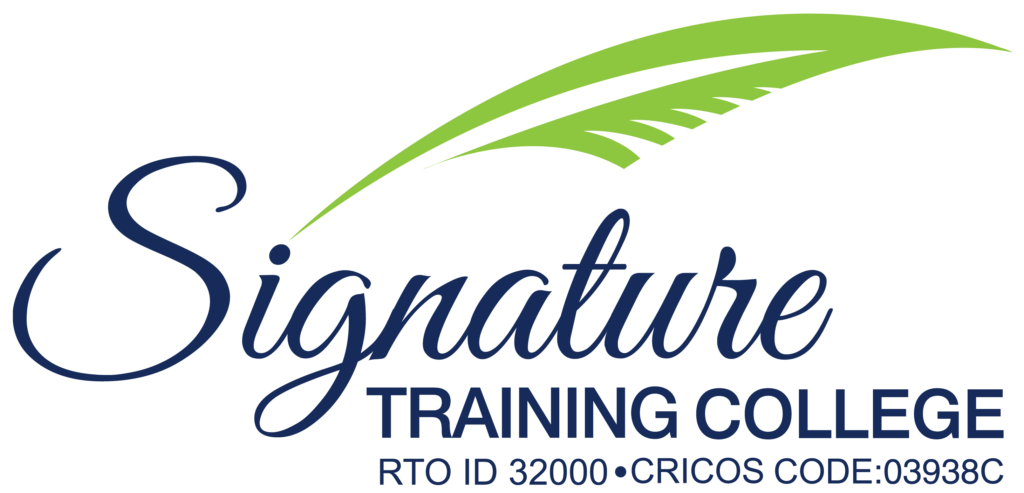Don't just apply, impress! Get insider tips on what employers...
Read MoreHLT54121 Diploma of Nursing
Next Intake Terms
June, October
Duration
Full time 2 years
2 days on campus
1 day self-directed
Mode of Delivery
Blended
Location
Camellia
- Course Overview
- Course Structure
- Course Delivery
- Additional Course Information
This diploma is a practice-based qualification. Once students have successfully completed the program, they will be able to make an application for registration as an Enrolled Nurse with NMBA. The course design is subject, or unit focused. Subjects are clustered around correlations between subject content, which are then integrated into the overall Diploma learning framework. As a result of input from experienced educators, teachers and registered nurse practitioners, the diploma’s structure is continuously evolving. These consulting educators understand the complex nature of the program and have designed the course to follow a logical sequence of learning while considering a variety of resource and facility issues. The program is also cognisant of other areas of study and provides a level of flexibility for both students and education providers.
The HLT54121 Diploma of Nursing qualification requires demonstration of competency in 25 units. The training package stipulates 20 core or mandatory units and Signature Training prescribes that at least one elective unit must be HLTAID011 Provide first aid, as it is a requirement to work in the industry and for PEP.
Student type
- Domestic and International
Mode of delivery
- Blended
- Course duration- Full time 2 years
Delivery Arrangement
Training delivery as determined by the Unit of Competency which includes:
- Role Play/Observation in Class
- Group Activities
- Written Examination in class under trainers’ supervision
- Case studies/Scenarios
- Research Assignments
- Workplace Assessments
Training Calendar
It is planned that a student will complete all 25 units of competency within 2 years.
- 2 days on campus
- 1 day self-directed
Next intake terms
June
October
Under the National Law, all nursing and midwifery students enrolled in an approved program of study, or who are undertaking Professional Experience Placements in nursing or midwifery, must be registered as a student with the NMBA Fact sheet: Student registration. This registration is undertaken by the Head of Nursing.
NSW Government Funding Subsidy
Places in the HLT54121 Diploma of Nursing course program as a targeted qualification due to industry shortages may be subsidised by the NSW Government through Smart and skilled Funding for domestic students and for Aboriginal and Torres Strait islander people. If you are eligible and successful in receiving a subsidised place you will be notified by STC administration office. You will be provided with:
- Appropriate information about the Consent Forms and Declarations that need to be signed Information about fees and refunds, and
- Any additional information.
For further information on Smart and Skilled, refer to www.smartandskilled.nsw.gov.au
Target Groups
The target students for this course delivery are individuals aged between 17 and older from various cultural backgrounds, who may be from one of the following groups:
- International students holding visa sub-class 500
- People interested in a career in Nursing
- People who have a Certificate IV or above qualifications in the Community Services or Health
- People who are currently working in the Community Services or Health industry and want to gain a formal qualification
- People who want to work in a variety of clinical settings including: community, aged care, mental health and acute care
- Aboriginal and/or Torres Strait Islander People
- Mature age adults endeavouring to undergo a career change
These students could display a wide variety of life experience, educational backgrounds and literacy levels. Some students may have formal experience within Health settings while others may not possess any experience.
Accreditation
Signature Training College is registered with and accredited by the Australian Skills Quality Authority (ASQA) and is authorised to deliver Nationally Recognized Training within the Australian Qualifications Framework.


Domestic | International |
|---|---|
|
|
Core Units
HLTENN035 Practise nursing within the Australian health care system
HLTENN036 Apply communication skills in nursing practice
HLTENN037 Perform clinical assessment and contribute to planning nursing care
HLTENN038 Implement, monitor and evaluate nursing care
HLTENN041 Apply legal and ethical parameters to nursing practice
CHCPRP003 Reflect on & improve own professional practice
HLTINF001 Comply with infection prevention & control policies & procedures
HLTWHS002 Follow safe work practises for direct client care
HLTENN040 Administer and monitor medicines and intravenous therapy
HLTENN042 Implement and monitor care for a person with mental health conditions
HLTENN043 Implement and monitor care for a person with acute health conditions
HLTENN044 Implement and monitor care for a person with chronic health conditions
HLTENN045 Implement and monitor care of the older person
CHCDIV001 Work with diverse people
CHCDIV002 Promote Aboriginal &/or Torres Strait Islander cultural safety
HLTENN068 Provide end of life care and a palliative approach in nursing practice
HLTENN047 Apply nursing practice in the primary health care setting
HLTAAP002 Confirm physical health status
HLTAAP003 Analyse and respond to client health information
HLTENN039 Apply principles of wound management
Electives
HLTAID011 Provide first aid
HLTWHS003 Maintain work health &safety
HLTENN057 Contribute to nursing care of a person with diabetes
HLTWHS006 Manage personal stressors in the work environment
HLTWHS003 maintain work health and safety
Hold immunisation records that meet NSW health services right of entry to work. Education providers are required to ensure that all students are informed of the requirements of the NSW Health policy directive prior to and at enrolment
Below is the schedule of vaccinations required prior to clinical placement: Hepatitis A, B
o Measles, Mumps and Rubella (MMR)
o Diphtheria, Tetanus and Pertussis (dTpa)
o Varicella Chickenpox x 2 doses
o Tuberculosis/ QuantiFERON Gold
o Polio
o Influenza (annually)
Covid-19 vaccination x 2doses + booster
Full vaccination against COVID-19 and boosters is required for all authorised workers which includes students undertaking PEP, including the following specific requirements:
all students placed on designated COVID wards and providing care/intervention to COVID positive cases or in settings where exposure to high-risk COVID patients is likely must be fully vaccinated against COVID-19;
COVID-19 vaccination dose is mandatory for all aged care workers
COVID-19 vaccination is mandatory for all healthcare workers or a valid medical exemption evidenced by an authorised medical practitioner;
Adult Health Vaccination Card: The Card is to confirm the student has completed all relevant vaccinations to comply with the NSW Health policy. The students Vaccination Card will be available for workplace health care staff to view at any time during placement. This ensures that current COVID-19 vaccination status is available for health services. Occupational Assessment, Screening and Vaccination Against Specified Infectious Diseases (nsw.gov.au)
STC strongly supports the rights of all people who wish to pursue enrolment in a nursing course program to achieve their career objectives. Inherent requirements are the abilities, attributes, skills and behaviours needed to meet the learning outcomes of the course.
STC is committed to making reasonable adjustments to learning and teaching, assessment, clinical practice and other activities to address the impact of students' disabilities so that they are able to participate in the course. Many of the activities associated with the professional practice of a nursing are time sensitive, where the capacity to perform certain activities within specified time limits is required to reduce or avoid risks to patient safety and wellbeing.
To support potential and current students' decision-making a set of inherent requirement statements has been developed. These statements specify the course requirements of the nursing courses for student admission and progression. Students should carefully consider the following inherent requirement statements, as a guide for your learning during the course to identify challenges you may have in meeting the requirements.
Communication
Effective verbal and non-verbal communication is essential to nursing and needs to be empathetic, respectful, clear, attentive, and non-judgmental. Effective written communication is a legal requirement nursing responsibility with professional and legal consequences. Students must demonstrate:
ability to understand and respond to verbal communication accurately, appropriately and in a timely manner
sensitivity to cultural and individual differences
ability to provide clear instructions aimed at the appropriate age-related level and in the context of the situation
timely clear feedback and timely reporting of health care and updates in progress notes
capacity to recognise, interpret and respond appropriately to behavioural cues
consistent and appropriate awareness of own behaviours and their impact on others
ability to construct comprehensible written communication that is appropriate to the situation using medical terminology where applicable
Ethical and legal behaviour
Nursing practice is mandated by specific legal and regulatory requirements and standards to enable the safe delivery of care. Students must demonstrate knowledge and compliance with Australian Law, professional regulations and scope of practice
Knowledge and Cognition
This course requires knowledge of theory and the skills of knowledge cognition, with the capacity to:
ability to read and comprehend a range of literature and information (literacy) and accurate preparation, calculation, administration and documentation of medication (numeracy) skills e.g., 100% accuracy with medication calculation.
ability to locate appropriate and relevant information
ability to integrate and implement knowledge in practice and keep within scope of practice
ability to process information that is relevant to nursing practice
Behavioural stability
Behavioural stability is required to work individually and in teams in changing and unpredictable environments. Nursing students will be exposed to emergency situations and human suffering and will be required to have behavioural stability to manage these events objectively and professionally. Students must be able to cope with their own emotions and behaviour effectively when dealing with individuals in the clinical setting.
Strength and mobility
Nursing practice requires manual handling skills and fine motor skills.
Sufficient fine motor skills are necessary to perform, coordinate and prioritise care. Tasks that involve fine motor skills include being able to grasp, press, push, turn, squeeze and manipulate various objects and individuals.
Students must be able to demonstrate and perform these tasks consistently and safely to reduce the risk of harm to self and others
Sensory abilities
Students must demonstrate sufficient visual acuity to perform the required range of skills in environments which may be difficult and hostile.
Students must demonstrate sufficient aural function to undertake the required range of skills. Students must demonstrate sufficient tactile function to undertake the required range of skills and assessments.
Any strategies to address the effects of vision, auditory and tactile impairment must be effective, consistent and not compromise treatment or safety.
Sustainable performance.
Nursing practice requires physical, mental and emotional performance at a consistent and sustained level over time
Sufficient physical, emotional and mental endurance is an essential requirement needed to perform multiple tasks in an assigned period to provide safe and effective care
The safety and wellbeing of students and our college community is always our priority. Students are required to undertake learning activities in mixed gender environments, which reflect the Australian health care context. The inherent requirements outlined provide a guide for students and staff members when deciding whether you are able to meet these requirements and the type of reasonable adjustments that could be put in place to allow you to complete the course without compromising the academic integrity of the course.
If a student believes that they may experience challenges related to disability, chronic health condition or any other reason, the student should discuss any concerns with a Head of Nursing. The Head of Nursing will be able to guide staff so students can work collaboratively to determine reasonable adjustments to assist meeting the Inherent Requirements. In the case where it is determined that Inherent requirements cannot be met the student support team will assist in proving guidance on other course program options.
Hold an Australian National Police Record Check, applications can be made through the Australian Federal police OR, Hold a valid National criminal record check from your home country or a Statutory Declaration witnessed by a Justice of the Peace
Hold a valid Australian Working with Children Check (WWCC) application can be made through Service NSW.
Registered NDIS providers delivering supports and services to NDIS participants must comply with the National Disability Insurance Scheme (Practice Standards—Worker Screening) Rules 2018. This means that registered NDIS providers must ensure that workers (Includes students) in risk assessed roles have a NDIS worker screening clearance.
Graduates who complete this course can work in:
acute (hospital) care
medical centres
mental health
rehabilitation
palliative care
aged care settings.
And more
Graduates of the STC Diploma of Nursing within the last 10 years and who hold NMBA registration as an Enrolled Nurse are eligible for entry into the Batchelor of nursing with 96 credit points of exemptions (equivalent to 1-year full-time study). The remaining duration in the Bachelor of Nursing is 2 years.
If you are a new enrolling student, undertaking Nationally recognized training, you will need a USI number to receive your Qualification/Statement of Attainment. If you do not have a USI you will not be able to receive a qualification. To create a USI account, go to the website: www.usi.gov.au
Signature Training College provides a creative and professional study environment with modern facilities. We have fully equipped simulation classrooms to support our learners. Our campus provides free Wi-Fi access and students can also enjoy complimentary coffee and tea during breaks after training sessions.
Strategies are adopted to support the enrolment of people from Culturally, socially and linguistically diverse academic backgrounds.
Signature Training College is honored with the diversity of our student population, and we aim to maximise the teaching and learning opportunities for every student.
We will provide an inclusive and welcoming environment and offer quality and culturally appropriate education for students from Culturally, socially and linguistically diverse academic backgrounds and work and life experiences to apply for enrolment into our courses, and offer support through the following:
Strategies are adopted to support the enrolment of Aboriginal and Torres Strait Islander students.
Signature Training College is honored with the diversity of our student population, and we aim to maximise the teaching and learning opportunities for every student. We encourage Aboriginal and Torres Strait Islander peoples to apply for enrolment into our courses, to enroll in our course programs, and offer support through the following:
Employability Skills Training
Smart and Skilled funding
VET Student loans
Nursing Scholarships
Domestic students
Signature Training College will provide an inclusive and welcoming environment and offer quality and culturally appropriate education for Aboriginal and Torres Strait Islander people. We will endeavour to encourage and inspire academic achievement, social and emotional development while validating the unique cultural identity of each Aboriginal and Torres Strait Islander person.
We have a dedicated position of an Aboriginal Liaison Officer whose role is to encourage and inspire academic achievement and assist with delivery of specific Aboriginal and Torres Strait Islander cultural safety training. To achieve this our Aboriginal Liaison Officer and Signature Training College target the following goals.
improving educational access for Indigenous people wanting to enroll in a vocational course program,
improving educational achievement of Indigenous students,
developing links with Indigenous communities to increase their participation in program design and development,
developing the knowledge and understanding of staff and students about Indigenous Australia,
providing opportunities for all Indigenous students to explore their collective and individual cultural links.
Domestic | International |
|---|---|
|
|
Aboriginal and Torres Strait Islander Student Support
Students will be supported with compliance with the Aboriginal and/or Torres Strait Islander Cultural awareness policy and supported with the Aboriginal and/or Torres Strait Islander peoples support committee
Indigenous student communities and support services through Aboriginal liaison officer (Ms. Celeste Dargan)
Student Services: info@signaturetraining.edu.au
Student Support Services Services Services Services Services Services Services Services Services Services Services Services Services Services Services Services Services Services Services Services Services Services & Resources
Signature Training College students are provided with academic and non- academic support to adjust to study and life in Australia, to achieve their learning goals and to achieve satisfactory progress towards meeting the learning outcomes of their chosen course of study.
Have more questions?
Get in touch with us today!

News and Related Articles
How a Diploma of Leadership and Management enhances your job skills
A Diploma of Leadership and Management can significantly strengthen your...
Read MoreThe Need for Early Childhood Educators and Childcare Workers in Australia
As the world develops, the need for qualified specialists in...
Read MoreMethods for collaborating and networking in community services
If you are attracted to jobs where you can make...
Read More




